#London henderson-wells
Text
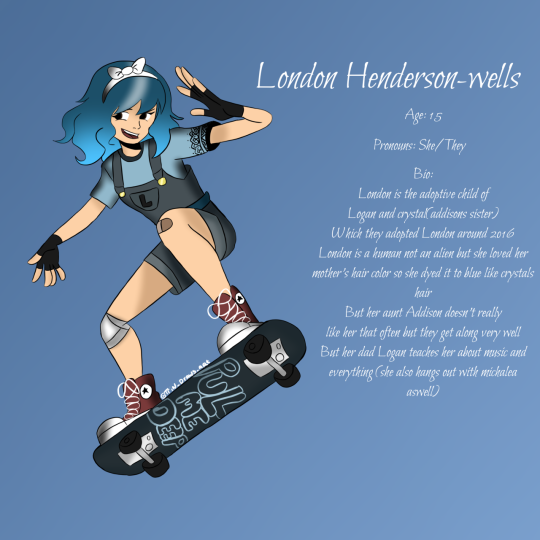
@cant-get-enough-btr-forever Meet London
Logan’s Step-Daughter in my au “The Kids On The New Block”
Her mom is crystal(Not Biological)
But I’m making London’s backstory soon
9 notes
·
View notes
Note
QUICK MICHAELA SINGING THE BIG TIME RUSH SONG RIGHT INFRONT OF LONDON -@trin-draws-art

🥏: (She can SING!!!!!)
London Henderson-Wells and Michaela Jackson belong to @trin-draws-art
#wild kratts#wild kratts oc#michaela jackson#london henderson-wells#sketch#drawing#ask box#ask answered
3 notes
·
View notes
Text
Logan: hey Addison have you seen London
Addison,smiling: NO SAYS THE ONE WHO LITERALLY GAVE MY SISTER A EFFIN BABY
Logan: Okay then, Trin
Trin: DUDE LONDON IS IN HER FREAKING ROOM ARE YOU THAT STUPID
Logan: If I was Carlos
Carlos entering the room: I HEARD THAT
London: Dad your an idiot
Logan: *Looks at Addison* you’re an Effin idiot
Addison: I wouldn’t be like you
#trins shitposts#logan henderson#London Henderson-Meyer#trinity hill#carlos penavega#addison wells#BBZ incorrect quotes#BTR incorrect quotes#Zombies incorrect quotes
3 notes
·
View notes
Text
Trans Awareness, Remembrance, and the Dangers of Existing
For those who still yet live.

(Image from GLAAD.)
November 13th – 19th was the annual Transgender Awareness Week, a week that ends in Transgender Day of Remembrance. The Day of Remembrance is a day that is solemn, tragic, and rather sobering. It’s the day we take to remember our transgender siblings who were killed in acts of transphobic hate. It is a day of mourning, of gravity, and many, many tears, because of how truly painful it can be. For me, a newly self-realized trans woman, it’s even more sobering.
Rewind to about a year ago. I was beginning to acknowledge the enormity of my gender dysphoria after 35 years of denial. It was something I was desperate to avoid at the beginning because I knew. I knew how much the world hates trans people for existing. How dangerous it is to step outside of the boundaries of the fragile social structure that we have encoded into our lives. How brittle and unsafe it can all be for someone who does not conform to the gender that we were assigned at birth.
I wanted to look away for so very, very long. To not admit the truth of my nature. But the funny thing about the truth is that it just stays there, even if you don’t believe it. And my truth was that I was trans. My new reality was that no matter how far I go in the journey, no matter how well I might “pass” (even though passing isn’t the goal, it’s being authentic to myself), there will always be people who hate me for existing.
I was unable to write this yesterday, due to obligations, but I wanted to write about it, nonetheless. Some friends of mine were able to hold a ceremony for the lives of our trans siblings who were taken this year. They got to say their names. They got to hold a candle for these brothers and sisters, dear people whose lives ended because someone decided that they shouldn’t exist.
These are their names. *
London Price.
Lisa Love.
A’nee Johnson.
Chyna Long.
YOKO.
Sherlyn Marjorie.
Kylie Monali.
Luis Angel Diaz Castro.
Thomas “Tom-Tom” Robertson.
De’Vonnie J’Rae Johnson.
Jacob Williamson.
Chanell Perez Ortiz.
Ashia Davis.
Banko Brown.
Rasheeda “Koko Da Doll” Williams.
Ashley Burton.
Tasiyah “Siyah” Woodland.
Tortuguita.
Cashay B. Henderson.
Imanitwitaho Zachee.
Maria Fer.
Jasmine “Star” Mack.
Unique Banks.
Say these names in your heart. Know that theirs was a life that was beautiful and should not have been taken away by a person with hate in their heart and fear in their mind. Recognize the fact that the largest percentage of these victims were black women by far. The oldest one of them was only 41 years old, 5 years older than me. Most were in their twenties. Some were in their teens. All were beautiful. All were born with innate divinity, the same innate divinity that dwells in each of us, the same image of the transcendent God that created all of us.
Remember them. Feel the weight of them. It’s a heavy load to bear, and much more than the community can stand. We are in an era of rapidly increasing transphobia. There is a concerted effort to mandate us out of existence legally. I honestly am somewhat afraid of coming home for Christmas this year because of my running into the wrong person while trying to spend time with my loved ones. (Then I remember it will be in Austin, and that’s probably as safe as it gets for gender-nonconforming individuals, and I relax, but it’s still by a slim margin.)
Before the day of remembrance is Trans Awareness Week. What's funny is before the past couple of years, I would rate everyone’s awareness of transgender people as relatively low, until certain lawmakers decided to make it an enormous issue. The truth of it is that trans people have always existed. We’ve always been there. Going back thousands of years, in cultures all over the globe, you will find trans people in history, if you look for them. Even going back, a couple of decades, yeah, things weren’t great for trans people, but mostly it was because people didn’t know what we were. People lived entire lives, not being free to be themselves. Now, we have people trying to educate people so that kids like me might understand more about themselves, and in response to simply new, better information about transgender identities, people react with hatred.
The thing about transgender people that I’m learning every day is that they are some of the bravest people I know. It takes bravery to ask yourself the hard questions about your identity. It takes bravery to live authentically as you are meant to be.
I was afraid that I didn’t have it in me to be brave enough to be trans.
But it doesn’t matter if I’m brave. It matters that I live. It matters that I exist. I’m extremely lucky, and privileged, to be where I am. To have lived the life I have lived is an extraordinary blessing. To have a family that still loves me and supports me is a blessing beyond measure. To have a partner who is willing to support me is an even greater blessing. So many trans kids and adults don’t have that. So many are turned out into a cold world that doesn’t want to make space for them. So many people would rather we did not exist.
The truth is, we do exist. And no matter how much they can try to legislate us out of existence, there will always be trans people. That’s the truth that cannot be erased or ignored. Just like I couldn’t ignore the truth about my gender identity, we as a people can’t ignore the hatred and violence that is done to trans people all the time. We cannot ignore the concerted effort by a few hateful individuals whose world is so small they cannot appreciate the infinite amount of beauty that trans people give to the world just by our existence.
I’m writing this because I want to make sure at the very least that I remember my siblings who have gone before me—those who face hatred and violence because of the small-minded hatred of bigots. Our world is so much more beautiful for us living in it.
May we one day live in a world where we no longer need to remember the lives of those killed because of anti-transgender hatred.
_________________________________________________
*Names retrieved from https://glaad.org/tdor-memoriam/.
74 notes
·
View notes
Text


Yes, I drew a mid-2000s teenager line up, featuring some of Hallie and Lance's dearest peers. No, I don't regret a single thing. 😂
***
I know I posted some short descriptions before but II brushed them up a little and want to have them all in one place, so here we go!
From left to right:
Mark McGrath (*February 7th 1987, in London/England, 5'8 ft) had to repeat 8th grade and somehow started hanging out with the cool kids of the year. Went to a fancy English boarding school as a kid... and somehow ended up at a random public school in Scotland as a pre-teen. No one ever found out what made him into the person he was... and no one really dared to just ask him either. A certain mystery surrounded Mark, which was fairly entertaining all by itself. Mark was a cool, calm and collected fella, easygoing and pleasant to be around, never as loud and obnoxious as some others but well, how do they say? Still waters run deep. And dirty. Mark was the one to ask for "special favours", such as getting weed/speed/acid/whatnot. Mark knew everyone and everything. Mark was the guy one would call if they had to get rid of a body. Mark never judged. Mark just did what had to be done. (Liked Hallie a lot, in a very innocent and friendly way, and even though the two never got to know each other on a deeper level, they always got along well and were able to communicate very naturally.)
Calum Hamish Fitzgibbons (*November 6th 1987, in Aberdeen/Scotland, 6'7 ft) was a nice kid, actually. A teenager of his time, with the appropriate brush of occasional overconfidence, because he had the looks and the wit. A lot of his peers looked up to him... quite literally, because, at seventeen, Cal was already 6'7 ft tall. Cal wasn't bad, he was just spoiled. His parents were pretty wealthy and he was used to getting whatever he wanted, without asking or having to put in any effort. That being said, when he was pining for Hallie, he kinda just expected that she would see the light one day, but he never dared to make an actual move to try and win her over. Partly because he didn't see the necessity, and also because romantic feelings for a friend are an awkward thing sometimes. When Hallie didn't just fall for him like he had hoped, and even picked his best friend over him during his absence, he was raging for several reasons. Being a bad person isn't one of them... but a male (teenage) ego is often a fragile one.
Hallie Henderson (*April 2nd 1988 in Aberdeen/Scotland, 5'7 ft) has loved writing all kinds of things ever since she was a wee lass... and being at school only fuelled that particular love! She was a very sweet and clever girl, with interest in pretty much anything, but most of all music, world affairs and also pop and rock culture, as well as clothes and boys (oooh!). Hallie decided to relaunch the school paper (with fellow writing enthusiast Lucy Dunn and the help of a few older students) at the tender age of thirteen, and had a carefully curated (and actually quite popular) web blog ("Hendersonic!") as well, in which she wrote about all the subjects and things that moved her. Hallie grew up with Type 1 diabetes, which always had the potential to put a damper on her generally happy attitude, and she was also afraid of being perceived as "plain" and "boring", and once it became cool to be "not like other girls", Hallie decided to jump right into that and became a bit of a Pick-Me, but she never lost her heart of gold (even though she tried to cover that up with the occasional *edgyness*). Cultural trends come and go, but being kind-hearted is always in style after all!
Lancelot Malcolm "Lance" Abbott (*July 27th 1988 in Aberdeen/Scotland, 5'3 ft) was an incredibly smart and headstrong prodigy; bold, clever, persistent and outspoken. It always seemed like there was nothing that Lance Abbott couldn't do... which was true, in a way, but also got to his head, unfortunately. Lance may have been kind at heart, but that wasn't exactly the part of his personality that he decided to flaunt - Lance was arrogant, on the brink of being very insensitive and plain rude at times. Despite his short and slight build, he had a very striking and intimidating presence; even people older than him preferred to not get into discussions and arguments with the little Abbott. Aside from his academic pursuit, Lance was also very musically gifted. He has played drums from an early age on, taught by his legendary dad, Craig, and had a great understanding for music in general.
Diana "Di" Ballantyne (*December 5th 1987, in Aberdeen/Scotland, 5'6 ft) was a stunning and headstrong Femme Fatale in training, with a passion for make up and clothes, and a strong disdain for Hallie and Lucy... and anyone else she deemed weird and/or boring. There was no rhyme and reason to what and whom Diana deemed boring, though, she just wanted to vibe and refused to put up with people and things she had no desire to put up with. Used to date Lance for a few months until she realised that the wee Abbott is just as much as a pain in the arse as she is, and broke up with him when things became too much of a hassle. (Met Lance again while he was in med school, and both hooked up every now and then over the years, despite not actually being into each other. Honestly, don't ask. 🤣)
It's hard to sum up Lowell "Fozzy" Foster (* September 17th 1987, in Inverness/Scotland, 6'5 ft) in just a few sentences... he was an experience. Not at all a bad kid either, but, uhm... well, let's just say that Fozzy's loyalty and integrity had limits, namely any time he sensed that there could be something in for him, when there was a lass he liked involved, or when doing the right thing was simply too much of a hassle. Aside from all this, Fozzy was a music freak, too, which is what always brought him and Lance back together, despite their various quarrels. Fozzy came from a very musically gifted family - he is the son of Andrew Foster, a well-known concert pianist, and Fionnula Graham-Foster, an opera singer. Being taught by his dad from an early age on, Fozzy was an outstanding piano player himself but he never bragged about that and rather half-arsed his way into playing other instruments instead, so he'd appear cooler to his peers. Fozzy was fun company, up for anything and an entertaining fella all around, for sure... it was just better to watch one's back when getting involved with him.
Lucille "Lucy" Dunn (* February 21st 1988) relaunched the school paper together with Hallie (and a few others) when both were thirteen and she became one of Hallie's closest friends over the years. Lucy was sweet in nature, but also quite blunt and never really cared about what others thought of her. She often spoke out what the sensitive Hallie didn't dare to say. She was also a childhood friend of Fozzy and secretly liked him a lot more than she ever cared to admit. Lucy was pretty badass overall and a true friend to anyone who managed to gain her trust, and she would not take crap from anyone, not even her teachers. When she punched a fellow student in the face after he groped her, and she was about to get detention, Lucy made it very clear to the headmaster what she thought of that - she threatened to take the incident to the paper and the police... and managed to get away with a warning. She still wrote about sexual harrassment in the school paper and dropped names, which was a scandal all on its own, but that's a different story. That being said, it was better not to mess with the young Miss Dunn - no matter what, she would strike back.
Timothy "Tim" Irvine (*March 3rd 1988) was the good soul of the gang. Outspoken and eloquent and not at all shy to voice his opinions, but where others of the same age just blurted out with whatever came to their minds at the moment, Tim actually thought about what he said. He was true friend material, always eager to understand both sides in an argument and staying respectful, even when he was mad or didn't agree with something. Tim didn't love what Lance started something with Hallie while knowing that his friend had been into her for an eternity, while they were away on vacation, but he was very willing to cut his friend some slack because he also saw what he had gone through. He was definitely not okay with the way Cal, Fozzy and Mark wanted to pay Lance back and eventually had a fall out with them as well. Tim was the last person of the former gang that Lance sent a text message to ("I'm alright, thanks. Take care, mate!"), after the blow up, and before they all went their separate ways in late Summer 2006.
***
Some closes ups, the lineart and the sketch:






#idiot artwork#artists on tumblr#the teenage saga#mark mcgrath#cal fitzgibbons#hallie henderson#lance abbott#diana ballantyne#lowell foster#lucy dunn#tim irvine
10 notes
·
View notes
Text
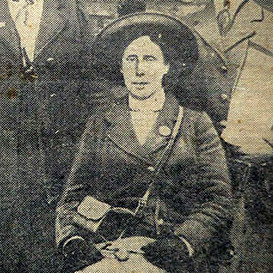
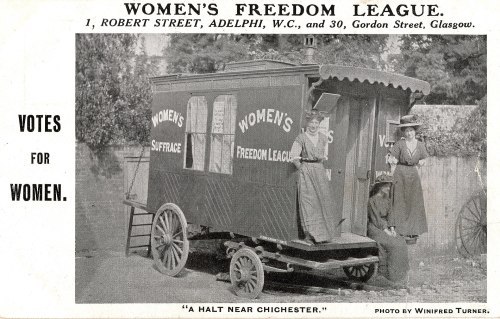
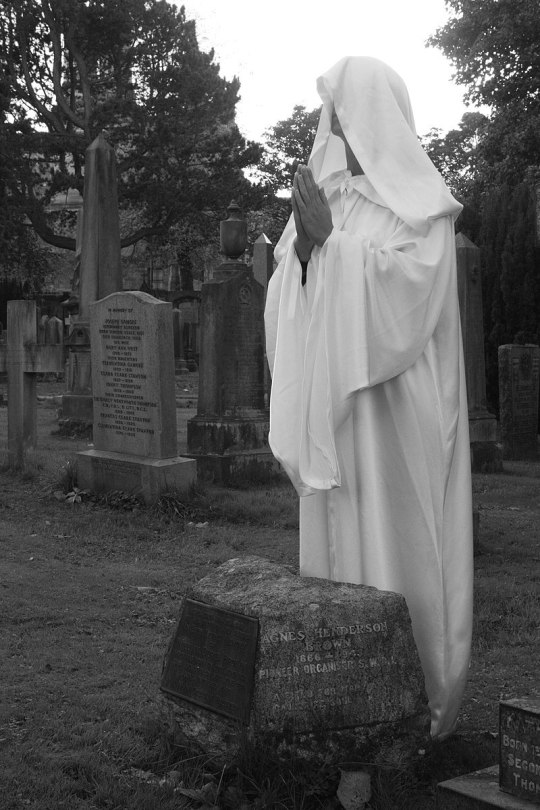
The Scottish Suffragette Agnes Henderson Brown was born on April 12th 1866 in Edinburgh.
Nannie Brown, as she later became known as was born at 125 Princes Street, which is slap bang opposite the Castle. The street in those days would have been mainly a residential one, as it was meant to be in the plans for the New Town, George Street was meant to be the main shopping are.
Their father was interested in social and political reform and the house became a centre of cultural activity. The Dad ran a number of fruit shops under the title of William Brown & Sons he trained his daughters, Agnes and Jessie, well and refused to submit to laws that he objected to, he was an activist for women’s rights. His opposition to taxes that differentiated between genders caused him to end up in Calton Gaol.
Agnes and her sister Jessie were among the first women to be seen on bicycles in Scotland. The safety bicycle was the direct ancestor of today’s machines. With a slight adaptation they attracted thousands of women to cycling and some historians point to the safety bicycle as the beginnings of suffrage, women’s rights and feminism.
They first became active in the (WFL) Women’s Freedom League around 1910. Agnes was one of 6 women who walked the whole length of the Edinburgh to London suffrage march in 1912. It took five weeks and involved walking around 15 miles a day and attending a suffrage rally each evening. The marchers were dressed in russet brown jackets, earning the six women the name (the) Brown Women.
Following Emily Davison’s death at the Derby in 1913 a deputation of Councillors, JPs ministers, solicitors and barristers from Scotland and the North of England tried to see Prime minister Asquith, He refused to see them so they formed the ‘Northern Men’s Federation for Women’s Suffrage’ Agnes became secretary of the Edinburgh Branch.
Unlike the (WSPU) The Women’s Social and Political Union , the WFL welcomed male support in the struggle. They continued campaigning throughout the war years.
After the war Agnes was involved in setting up the (SWRI) Scottish Women’s Rural Institute and was an organiser from 1917-22. She was also a member of the Edinburgh Women’s Citizens Association.
Nannie Brown wrote articles and plays and participated in societies such as the Edinburgh Dickens Fellowship, where she learned women to type and ride a bicycle.
She continued to walk. Not content with the Brown Women walk she repeated a similar walk but this time she set off from John O Groats. As she travelled to London she reported on her journey in the Weekly Scotsman.
Agnes Brown died on 1st December 1943 and was buried with her parents in Dean Cemetery Edinburgh. She was noted in the Scottish Saltire Society who published her obituary as an Outstanding Women of Scotland Community in 2014
44 notes
·
View notes
Text
THE GOOD WITCH - MAISIE PETERS ALBUM REVEIW
23.06.2023 • Pop/Alternative • 15 songs • 47 minutes • 2023 Gingerbread man records, Warner Music Group
★★★★☆
FAV SINGLE: Run
TOP 3: Coming Of Age • Wendy • Watch

Maisie Peters is a British singer-songwriter, based in London & originally from West Sussex. Peters emerged into the music industry in 2017, signing to Atlantic Records shortly after, Under which, she released two EPs & other singles as well as writing the soundtrack to the Apple TV+ series ‘Trying’. In 2021, Maisie signed to Gingerbread Man Records, releasing her debut album that same year & now, releasing her sophomore album ‘The Good Witch’.
Something I love about this album is that she doesn’t shy away from production. A lot of emerging pop artists tend to go for an acoustic sound now, recording songs at home in their bedroom or closet with just a laptop & a mic and sending them off for mixing. Whilst Maisie has some of that sound in her songs, they still have complex elements of production & her upbeat pop songs reign above with the layering of all kinds of instruments: drums, synths, vocals, the list goes on. She perfectly combines the two sides of pop music into her discography whilst remaining a lyrical genius. She’s also broken the mould of female pop artists having to re-invent themselves with every album cycle & finding a new sound. In reality, there’s nothing wrong with continuing to produce music of a certain sound, especially if it works for the artist. In my mind, ‘The Good Witch’ is a more mature older sister to Maisie’s debut album ’You signed up for this’.
‘Wendy’ is without a doubt one of the most lyrically beautiful songs I’ve ever heard. The album’s 9th track, written around the concept of Peter & Wendy, is a song about knowing your own worth & choosing the right path (even if it’s not what the heart wants) to avoid becoming invisible & regretting life later on. It shows that wanting to see the best in others isn't always good because you become blind to the truth as it becomes an unreachable reality. Even if you know it’s right, things can still feel wrong in the moment & you have to make the sacrifices that are best for you. In a heartbreaking way, the song is an uplifting ballad about taking control of your own life & not waiting around on people who might not even be there in the end.
The week after the album was released, on the 30th June 2023, ‘The Good Witch’ debuted at number 1 on the UK’s official album charts which gave Maisie her first ever number one album. Additionally, at 23, Maisie became the youngest British female solo artist to do so in almost 10 years, the record was previously held by Ella Henderson who achieved number 1 with her LP ‘Chapter One’ in 2014 at 18 years old. Maisie’s first album, ’You signed up for this’, peaked at number 2 on the official album chart when it was released in 2021.
Alone, Maisie has built up a large fanbase, having been dubbed one of Taylor Swift’s industry children & thus, attracting hordes of British swifties, but she has also done so through her relationship with Ed Sheeran. Sheeran signed Maisie to his record label 'Gingerbread Man Records’ in 2021 after she burst into the music industry & the two have a very close & public mentor/mentee relationship. A key part of building her fanbase has come from opening for Sheeran’s ‘Mathematics Tour’ for almost all of the UK/EU dates, all Oceania dates & a few of the American dates. As an incentive for ‘The Good Witch’ to reach number 1, Ed claimed over social media that he’d release a fan-favourite demo of hers if the album did so. And true to his word, Ed leaked ‘Girl’s House’ the evening the album charted via a link on his instagram story & fans went mental.
Overall, I think that I personally prefer Maisie’s first album (as a body of work) but this is subject to change as time goes on of course. She is, without a doubt, one of the next big pop girls on the scene & her neverending talent just solidifies her position in the music industry.
#concert#live music#music#music producer#music production#taylor swift#drums#guitar#pop music#dylan#ed sheeran#taylor's child#taylor's children#maisie peters#you signed up for this#the good witch#cottagecore murder#is the album#thats it#or#cottagecore murderer#thats better#wendy darling#run#mathematics tour#london
12 notes
·
View notes
Text
By: Rob Henderson
Published: Nov 16, 2019
I was bewildered when I encountered a new social class at Yale four years ago: the luxury belief class. My confusion wasn’t surprising given my unusual background. When I was two years old, my mother was addicted to drugs and my father abandoned us. I grew up in multiple foster homes, was then adopted into a series of broken homes, and then experienced a series of family tragedies. Later, after a few years in the military, I went to Yale on the GI Bill. On campus, I realized that luxury beliefs have become fashionable status symbols. Luxury beliefs are ideas and opinions that confer status on the rich at very little cost, while taking a toll on the lower class.
In the past, people displayed their membership of the upper class with their material accoutrements. But today, luxury goods are more affordable than before. And people are less likely to receive validation for the material items they display. This is a problem for the affluent, who still want to broadcast their high social position. But they have come up with a clever solution. The affluent have decoupled social status from goods, and re-attached it to beliefs.
Human beings become more preoccupied with social status once our physical needs are met. In fact, research reveals that sociometric status (respect and admiration from peers) is more important for well-being than socioeconomic status. Furthermore, studies have shown that negative social judgment is associated with a spike in cortisol (hormone linked to stress) that is three times higher than non-social stressful situations. We feel pressure to build and maintain social status, and fear losing it.
It seems reasonable to think that the downtrodden might be most interested in obtaining status and money. But this is not the case. Inhabitants of prestigious institutions are even more interested than others in prestige and wealth. For many of them, that drive is how they reached their lofty positions in the first place. Fueling this interest, they’re surrounded by people just like them—their peers and competitors are also intelligent status-seekers. They persistently look for new ways to move upward and avoid moving downward. The French sociologist Émile Durkheim understood this when he wrote, “The more one has, the more one wants, since satisfactions received only stimulate instead of filling needs.” And indeed, a recent piece of research supports this: it is the upper class who are the most preoccupied with gaining wealth and status. In their paper, the researchers conclude, “relative to lower-class individuals, upper-class individuals have a greater desire for wealth and status…it is those who have more to start with (i.e., upper-class individuals) who also strive to acquire more wealth and status.” Plainly, high-status people desire status more than anyone else.
Furthermore, other research has found that absolute income does not have much effect on general life satisfaction. An increase in relative income, on the other hand, has a positive effect. Put differently, making more money isn’t important. What’s important is making more than others. As the researchers put it:
Increasing an individual’s income will increase his or her utility only if ranked position also increases and will necessarily reduce the utility of others who will lose rank…[which] may explain why increasing the incomes of all may not raise the happiness of all, even though wealth and happiness are correlated within a society at a given point in time.
Baby Millionaires
You might think that, for example, rich kids at elite universities would be happy because their parents are in the top one per cent of income earners. And they will soon join their parents in this elite guild. But remember, they’re surrounded by other members of the one per cent. Their social circle, their Dunbar number, consists of 150 baby millionaires. Jordan Peterson has discussed this phenomenon. Citing figures from his experience teaching at Harvard in the 1990s, Peterson noted that a substantial proportion of Ivy League graduates go on to obtain a net worth of a million dollars or more by age 40. And yet, he observes, this isn’t enough for them. Not only do top university graduates want to be millionaires-in-the-making; they also want the image of moral righteousness. Peterson underlines that elite graduates desire high status not only financially, but morally as well. For these affluent social strivers, luxury beliefs offer them a new way to gain status.
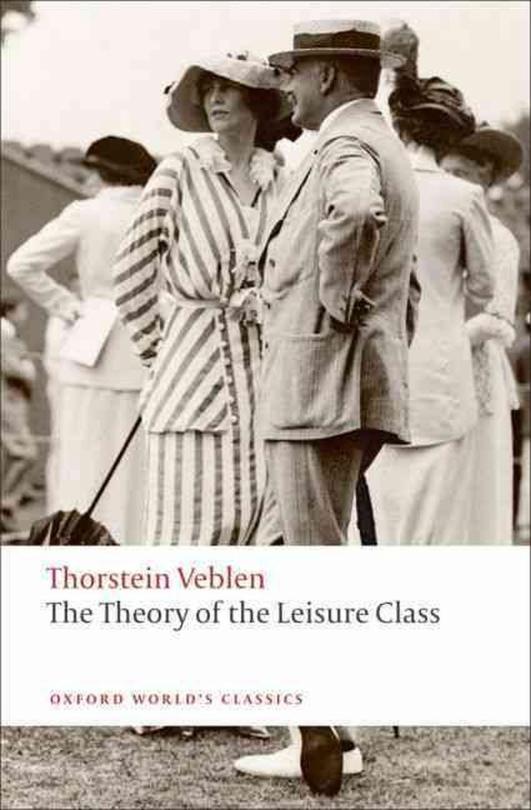
Thorstein Veblen’s famous “leisure class” has evolved into the “luxury belief class.” Veblen, an economist and sociologist, made his observations about social class in the late nineteenth century. He compiled his observations in his classic work, The Theory of the Leisure Class. A key idea is that because we can’t be certain of the financial standing of other people, a good way to size up their means is to see whether they can afford to waste money on goods and leisure. This explains why status symbols are so often difficult to obtain and costly to purchase. These include goods such as delicate and restrictive clothing like tuxedos and evening gowns, or expensive and time-consuming hobbies like golf or beagling. Such goods and leisurely activities could only be purchased or performed by those who did not live the life of a manual laborer and could spend time learning something with no practical utility. Veblen even goes so far as to say, “The chief use of servants is the evidence they afford of the master’s ability to pay.” For Veblen, Butlers are status symbols, too.
Building on these sociological observations, the biologist Amotz Zahavi proposed that animals evolve certain displays because they are so costly. The most famous example is the peacock’s tail. Only a healthy bird is capable of growing such plumage while managing to evade predators. This idea might extend to humans, too. More recently, the anthropologist and historian Jared Diamond has suggested that one reason humans engage in displays such as drinking, smoking, drug use, and other physically costly behaviors is because they serve as fitness indicators. The message is: “I’m so healthy that I can afford to poison my body and continue to function.” Get hammered while playing a round of golf with your butler, and you will be the highest status person around.
Conspicuous Convictions
Veblen proposed that the wealthy flaunt these symbols not because they are useful, but because they are so pricey or wasteful that only the wealthy can afford them, which is why they’re high-status indicators. And this still goes on. A couple of winters ago it was common to see students at Yale and Harvard wearing Canada Goose jackets. Is it necessary to spend $900 to stay warm in New England? No. But kids weren’t spending their parents’ money just for the warmth. They were spending the equivalent of the typical American’s weekly income ($865) for the logo. Likewise, are students spending $250,000 at prestigious universities for the education? Maybe. But they are also spending it for the logo.
This is not to say that elite colleges don’t educate their students, or that Canada Goose jackets don’t keep their wearers warm. But top universities are also crucial for induction into the luxury belief class. Take vocabulary. Your typical middle-class American could not tell you what “heteronormative” or “cisgender” means. But if you visit Harvard, you’ll find plenty of rich 19-year-olds who will eagerly explain them to you. When someone uses the phrase “cultural appropriation,” what they are really saying is “I was educated at a top college.” Consider the Veblen quote, “Refined tastes, manners, habits of life are a useful evidence of gentility, because good breeding requires time, application and expense, and can therefore not be compassed by those whose time and energy are taken up with work.” Only the affluent can afford to learn strange vocabulary because ordinary people have real problems to worry about.
The chief purpose of luxury beliefs is to indicate evidence of the believer’s social class and education. Only academics educated at elite institutions could have conjured up a coherent and reasonable-sounding argument for why parents should not be allowed to raise their kids, and should hold baby lotteries instead. When an affluent person advocates for drug legalization, or anti-vaccination policies, or open borders, or loose sexual norms, or uses the term “white privilege,” they are engaging in a status display. They are trying to tell you, “I am a member of the upper class.”
Affluent people promote open borders or the decriminalization of drugs because it advances their social standing, not least because they know that the adoption of those policies will cost them less than others. The logic is akin to conspicuous consumption—if you’re a student who has a large subsidy from your parents and I do not, you can afford to waste $900 and I can’t, so wearing a Canada Goose jacket is a good way of advertising your superior wealth and status. Proposing policies that will cost you as a member of the upper class less than they would cost me serve the same function. Advocating for open borders and drug experimentation are good ways of advertising your membership of the elite because, thanks to your wealth and social connections, they will cost you less than me.
Unfortunately, the luxury beliefs of the upper class often trickle down and are adopted by people lower down the food chain, which means many of these beliefs end up causing social harm. Take polyamory. I had a revealing conversation recently with a student at an elite university. He said that when he sets his Tinder radius to five miles, about half of the women, mostly other students, said they were “polyamorous” in their bios. Then, when he extended the radius to 15 miles to include the rest of the city and its outskirts, about half of the women were single mothers. The costs created by the luxury beliefs of the former are borne by the latter. Polyamory is the latest expression of sexual freedom championed by the affluent. They are in a better position to manage the complications of novel relationship arrangements. And if these relationships don’t work out, they can recover thanks to their financial capability and social capital. The less fortunate suffer by adopting the beliefs of the upper class.
This is well-illustrated by the finding that in 1960 the percentage of American children living with both biological parents was identical for affluent and working-class families—95 percent. By 2005, 85 percent of affluent families were still intact, but for working-class families the figure had plummeted to 30 percent.
Children living with both biological parents
Affluent families in 1960: 95%
Working class families in 1960: 95%
Affluent families in 2005: 85%
Working class families in 2005: 30%
https://www.goodreads.com/book/show/12031563-coming-apart
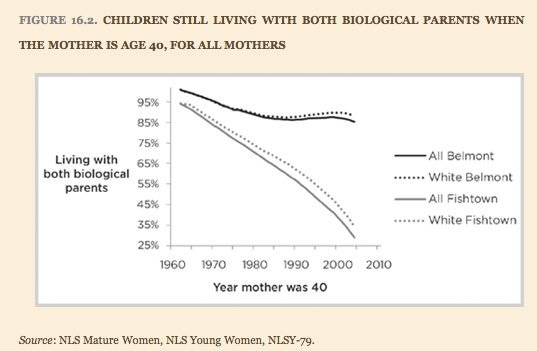
— Rob Henderson (@robkhenderson) September 29, 2019
The Harvard political scientist Robert Putnam at a Senate hearing said, “Rich kids and poor kids now grow up in separate Americas…Growing up with two parents is now unusual in the working class, while two-parent families are normal and becoming more common among the upper middle class.” Upper-class people, particularly in the 1960s, championed sexual freedom. Loose sexual norms spread throughout the rest of society. The upper class, though, still have intact families. They experiment in college and then settle down later. The families of the lower class fell apart. Today, the affluent are among the most likely to display the luxury belief that sexual freedom is great, though they are the most likely to get married and least likely to get divorced.
The Rabble and the Rich
This aspect of luxury beliefs is worrisome. As I noted in my original luxury beliefs essay, material goods have become more affordable and, thus, less reliable indicators of social class. Status has shifted to the beliefs we express. And beliefs are less expensive than goods because anyone can adopt them. They are not financially costly. And according to Veblen, along with other social observers like Paul Fussell, ordinary people try to emulate the upper classes. The elite want to differentiate themselves from the rabble with their visible badges of luxury. But then then the class below tries to emulate the elite, and the stratum below that as well, until the style has trickled down to the rest of society. And because luxury beliefs don’t have any financial costs, the ‘fashion’ in beliefs trickles down more quickly.
Over time, luxury beliefs are embraced down the social ladder—at which point, the upper class abandons its old luxury beliefs and embraces new ones. Which explains why the beliefs of the upper class are constantly changing. It’s easy to see how this works if we look at actual fashion. The author Quentin Bell, in On Human Finery, wrote “Try to look like the people above you; if you’re at the top, try to look different from the people below you.” The elite’s conspicuous display of their luxury beliefs falls into this pattern. Their beliefs are emulated by others, sending them off in search of new beliefs to display. The affluent can’t risk looking like hoi polloi, after all.
Or consider art. The psychologist Steven Pinker in How the Mind Works writes, “In an age when any Joe can buy CDs, paintings, and novels, artists make their careers by finding ways to avoid the hackneyed, to challenge jaded tastes, to differentiate the cognoscenti from the dilettantes.” Artists want to differentiate themselves from what’s been done before and what others are currently doing. And so do the affluent. Moral fashions change over time for the same reason. Moral fashions can quickly spiral as more and more members of the chattering classes adopt a certain view. Once the view becomes passé, the upper class, aiming to separate themselves, then update their moral inventories. Veblen still reigns supreme, but in a different way.
As he puts it, “What is common is within the (pecuniary) reach of many people…Hence the consumption, or even the sight of such goods, is inseparable from an odious suggestion of the lower levels of human life.” The affluent do not want to be seen with “common” goods. They view them as distasteful. Today, it’s not just common goods they view as distasteful—it’s beliefs too. The affluent, dreading an “odious” designation, resist displaying commonplace beliefs. Those beliefs are for the little people. Instead, the upper class want to be seen displaying luxury beliefs.
Modern neuroscience did not exist in the nineteenth century. But Veblen might have been amused to learn that the same regions of the brain involved in rewards such as eating chocolate or winning money also activate when we receive compliments from strangers or learn that people we will never meet find us attractive. Veblen wrote, “Immaterial evidences of past leisure are quasi-scholarly or quasi-artistic accomplishments and a knowledge of processes and incidents which do not conduce directly to the furtherance of human life.” In his day, the leisure class spent a lot of time accruing useless knowledge and partaking in activities that have the appearance of intellect and artistry, but had no functional utility. These activities didn’t help anyone, but they did make their enthusiasts look good. What might Veblen have made of Twitter, given these observations?
Status Spirals
The economist and social theorist Thomas Sowell once said that activism is “a way for useless people to feel important, even if the consequences of their activism are counterproductive for those they claim to be helping and damaging to the fabric of society as a whole.” The same could be said for luxury beliefs. They are similar to luxury goods, but present new problems. Attaching status to luxury goods or financial standing meant there were limits to how much harm the leisure class could do when it came to their conspicuous displays. For example, fashion is constrained by the speed with which people could adopt a new look. But with beliefs, this status cycle accelerates. A rich person flaunts her new belief. It then becomes fashionable among her peers, so she abandons it. Then a new stylish belief arises, while the old luxury belief trickles down the social hierarchy and wreaks havoc.
[ Via: https://archive.is/JBD4Y ]
==
The people who want to lecture you about your "privilege" are the most privileged of all.
#Rob Henderson#luxury beliefs#Thorstein Veblen#leisure class#ruling class#status seeking#status symbol#virtue signal#virtue signaling#virtue signalling#religion is a mental illness
12 notes
·
View notes
Text
Stranger Things Coffee Shop Headcanons
So, I figured as an actual barista who understands his craft and has dealt with a lot of customers, I have duty to the byler nation (and the general public) to make a proper Party+ El and Max coffee shop au HCs. I am in no way an expert in all that is coffee but I do make coffee basically every day and have realized most people don’t know that much about coffee so I am very qualified.
Anyways, here you all go
Mike Wheeler - Mike is the asshole (/affectionate) who goes to coffee shops and buys just tea. He mostly likes a London Fog and get’s a large. He also always get’s a little treat. He prefers scones but will settle for anything but also will be over the moon with excitement. He over tips even though all he does is get tea. He also tips every time he goes for a refill. He’s a writer so he also sits in one spot basically all day but always leaves thirty minutes before close and leaves his work area cleaner then it was when he got there.
Will Byers - He is a caffeine addict and he will do anything for it. He drinks coffee 24/7 but he doesn’t actually like coffee. He 100% orders a Carmel and Vanilla latte (Iced... always iced) with whipped cream and drizzle. And he also always gets extra pumps of the flavoring because he is crazy (sadly, Mike will not be joining him in this). he rarely gets anything to eat choosing to get a sandwich from a nearby shop. He also sits outside most of the time so he can paint or draw in peace. He has his work hanging up in the local coffee shop and it always sells fast. He also likes to paint the barista’s as an extra tip. He of course always generously tips. He keeps his work area generally clean but his favorite spot to sit outside always as a little bit of paint left over but he is usually gone about mid day.
Lucas Sinclair - He loves just a basic hot vanilla latte. He’ll get it with almond milk a lot of times but doesn’t really care. He also grabs any hot food / breakfast items that are available. he always goes before school just to grab a cup. He also is usually picks up drinks for the rest of the party if they ask. He 100% grabs El and Max their drinks and has their orders down. Whenever he forgets his morning coffee, one of the party will sneak off and make a quick coffee run just for him. Lucas is the person who relies of the barista’s knowing his order mostly because his brain just doesn’t work very early in the morning. He’ll grab an second coffee if he has a game later in the day or a big test. He does like to sit down at the coffee shop if he is with friends or out on a date. He also obviously tips well. He also tips the same amount every time he goes.
Dustin Henderson - Dustin was banned multiple times from drinking coffee but will still grab a cup if he has a school project due the next day. He mostly just gets a smoothie now a days whenever they go. He also likes to get a muffin but never finishes. He eats half of it and then pics at it for the rest of the chat. He also mostly just hangs around the coffee shop when he is with friends and rarely ever goes to begin with. But all the barista’s know him by name. Dustin also tips great obviously
Jane “El” Byers-Hopper - She is also banned from drinking coffee. She tried it one time and started vibrating. So she likes to get frappes that don’t have any caffeine in them. She likes vanilla frappe with cinnamon powder and chocolate drizzle. During the winter she will get a hot chocolate with whip cream. She hangs out at the coffee shop a lot with Max. They will sit outside and she will watch Max try to do skate board tricks on the empty road. They accidentally leave a mess despite their best efforts to clean up but it’s okay because the barista’s love them so much. Sometimes they will give El extra stamps on her card. El also tips as much as she can although Max had to teach her a reasonable amount to give. Even though El still gives a few more dollars then that.
Max Mayfield - She does get coffee despite being a gremlin when she drinks it. She get’s a Carmel and Vanilla latte and likes it iced with whip cream. She ends up only drinking half of it before she gets distracted by skate boarding. She refills her drink with ice 5 times before deciding it is mostly just water and can be thrown out. She also one time tried to do a trick on her skateboard while drinking her coffee and ended up in the hospital. She tips but also leaves bottle caps she finds out in the street in the tip jar. The barista’s hate her (/affectionate)
#Byler#Coffee Shop AU#My writing#Headcannons#Stranger things#Elumax#Mike Wheeler#Max Mayfield#El Byers#El Hopper#Jane Byers#lucas sinclair#dustin henderson#I was bored so I finished this#Of course I post this at 1 30 am
54 notes
·
View notes
Note
65. Horror - Eddie and Lucy?
- @kittttycakes

Eddie was having a hard time deciding whether he should feel guilty or not. On the one hand, he was Lucy's friend and therefor it was perfectly reasonable for her to cling to him during the scary parts of a horror movie. On the other hand, he was enjoying himself way too much.
Hellfire had been relocated to Garret's garage that week due to the theater department needing the space for the upcoming spring show. So, instead of everyone going their separate ways after a session they had all decided to put in a movie. Jeff had suggested An American Werewolf in London and well...here he was, sitting on a beat up couch with Lucy Henderson squeezing him like an oversized teddy bear.
This wasn't a new development. The first them they decided to hang out after school just the two of them he had put in Poltergeist. He almost turned it off thirty minutes in as Lucy looked like she was about to tear the pillow she was hugging with her teeth. She insisted she was fine and even started rambling off random facts about the movie she had read in magazines. Turns out monster make-up and effects was a passion of hers.
It was clear enough that while she could genuinely get caught up in the terror, once it was all over, she treated it like going on a roller coaster and was all ready to do it again. In the meantime though, something to stress squeeze was required. Pillows were the usual go to, but if none were available, Eddie began offering himself.
It was the selfish thing to do. He knew it, but he would be the first to admit he was no saint.
So for an hour and thirty seven minutes he held his favorite girl in his arms, teasing her when she jumped and listening as she rambled about prosthetics, plaster and chewing gum.
No, he couldn't feel guilty about any of it.
send me a two names and a number
A/N: @kittttycakes, thanks for this! I really needed it. :D
#stranger things#eddie munson#eddie munson x oc#stranger things oc#lucy henderson#eddie munson x henderson!reader#leddie
17 notes
·
View notes
Text
Currently working on S2 Ep23 and while I’m working on it have this
#trins shitposts#wild kratts#kotnb#sunny starscout human#london henderson-wells#crystal henderson-wells#Logan henderson
11 notes
·
View notes
Note
Have you seen the magazine article where Paul makes a comment about women being closer to nature because of their periods? It’s reminded me a lot of the playboy interview where a lot of what was written was kind of unsettling and chauvinistic. The article’s from 1984, a year before the playboy interview.
If not here’s a link:
https://floatupstream.tumblr.com/post/688453393547706368/scanned-from-mccalls-august-1984
Hello anon, thank you for sharing this article. I found it here:

Yeah, the compliment he came up with actually sounds cringey. As the journalist pointed out, Paul doesn't understand women, nor does he bother to figure out. He seems to be quite proud of such a theory that, as far as I know, it was brought up again on another interview 14 years later:
I think that the fact that women give birth gives them a better connection to the universe than men. God bless them, men are lovely and you can’t make babies without them, I’m proud to be one — but I admire women perhaps more. They’ve got a rough deal — they go through the pain of birth.
I used to joke with Linda, I’d say, “I’ve had four babies and it didn’t hurt a bit.” I’d have to duck quickly before she’d throw something at me. But that’s a bit of the male attitude: hey, we just give out cigars, it’s great! Whereas women are going through all this pain and anguish. Anyway, I think being a mother gave Linda a deep connection with animals.
— Paul McCartney, interview w/ Chrissie Henderson for USA Week-end: Tears and laughter. (October 30, 1998)
Paul's obsession for procreation is well documented. I suppose it's broadly inarguable that the ability to breed is the female quality he values most. The fandom is keen on preaching Paul being a "weirdo" - a fashionable lad in Swinging London who was open to everything but neglect the fact that he has always been the old-fashioned man from up North who has clung ferociously to his working roots and attitudes. I've never been a fan of "weirdo Paul" - as we see, this is the kind of unusual idea that fits his freak-out image.
43 notes
·
View notes
Note
Cynthia Kirkpatrick (Wives and Daughters) and Mary Crawford (MP) - cut from the same cloth?
You are SO in luck, the person who coerced me into reading Wives & Daughters frequently compares it to Mansfield Park so this was already swimming around in my head. So grateful that I was coerced by the way, here is their comparison of Roger and Edmund if you are interested.
To your question! I don't think Mary and Cynthia are similar at all.
Cynthia, if I understand her correctly, has been deprived of love by her mother and this leads her to attempt to gain the admiration of basically every man she meets, whether she likes them or not. She's very beautiful and she pretends to be interested in what people say. She accepts Roger not because she loves him, she even admits this, but because he's a good person and it makes her feel safe since she's already engaged to the loathed Mr. Preston. She breaks it off, I think partially because she sees that her and Roger are unsuited to each other, but also because she fears losing his love over time and because of the Mr. Preston thing.
The only big similarity I see between them is that both Cynthia and Mary understand and respect the goodness of their prospective man.
Mary hasn't been so much deprived of love as she's lost her mother and mother-figure. While her brother won't live at Everingham for her, he clearly loves her and they seem to have a good, secure relationship. Mary doesn't come off as someone yearning for attention and admiration, she wants to attract a man so she can marry well. Mary does attempt to flirt with Tom, but she isn't trying to charm every man she sees in the way that Cynthia does. Unlike Cynthia, Mary does really love Edmund.
Cynthia was one of those natural coquettes, who, from their cradle to their grave, instinctively bring out all their prettiest airs and graces in order to stand well with any man, young or old, who may happen to be present.
Now to be clear, I found Cynthia very sympathetic and the explanation for why she does what she does is important, but Cynthia is constantly trying to win over men; she can't really help it. Mary is not like this. Mary doesn't try to flirt with Tom when he returns, she doesn't flirt with Yates, and when she returns to London, Edmund explicitly says he isn't jealous of any other person. Mary does say nice things to people socially, but going around a ball and complimenting the family is very different than flirting.
Mary is mercenary or superficial. Cynthia really doesn't seem to care about wealth very much, it seems she likes Mr. Henderson because he's charming and he understands her. Mary loves Edmund, but she cannot let go of her desire for wealth and consequence.
Also, Cynthia is terrified of losing the love she does have. She has Molly’s devotion and fears telling her about Preston. She is very afraid of losing Mr. Gibson’s regard as well. Mary insults Edmund’s profession to his face and doesn’t really worry about losing him until he stays unexpectedly long away. She also never seems afraid of losing Mrs. Grant’s or Henry’s regard.
The dynamic between Cynthia/Roger and Mary/Edmund is very different, but that might partially be because we get a lot more of Mary/Edmund while most of Cynthia and Roger’s relationship he is in Africa and she is dealing with the Mr. Preston problem. However, I don’t see Cynthia as someone who would encourage Roger to change his profession. She is capable of being manipulative but we only see her really use that when she convinces Molly to return the money to Mr. Preston. Most of the time she’s just trying to make people like her.
The dynamic between Fanny/
Additional Note: Cynthia is a complicated character because she’s very beautiful and therefore the threshold for a man proposing is lower than for your average woman. She does like the admiration, though she doesn’t seem to like that men propose. She could act in a way that put men off, as Molly does with Mr. Coxe, but she doesn’t. And yes, its unfair that by simply looking very attentive when a guy talks, men assume that she loves them. However, I don’t think Mr. Gibson was unreasonable to be angry at her for not being more off-putting when she is semi-engaged to Roger.
Cynthia’s life isn’t fair and her society isn’t exactly helping her.
10 notes
·
View notes
Text
The (sad) life of Francis Henderson Junior
(When I thought John Laurens' life was sad enough this appeared)
The information that will appear was taken from here.
Better known like John Laurens' grandson, only surviving child of Frances Laurens and Francis Henderson, this newspaper talked some little details about his life.
They (Frances Laurens and Francis Henderson) lived together about a year, which time young Frank (Francis Jr) was born. (I suppose he was born in London and it was understood in Abbeville as I several times hear him say his vote was challenged at Cedar Springs in '30 or '32 for evidence that he was "civilized")
Francis Henderson and Frances Laurens married in the year 1795, Francis Jr was the only surviving child of the marriage, Francis Jr was certainly born in London and baptised there, about his year of born I don't know where's the source but most of mentions of him around internet said he was born during 1800 (as the article suggest).
Here, starts the most personal part of his life, one that, for lack of sources to refute or support this, I'm going to just copy it here.
The husband and wife spent the second year or a part of it, in Paris, and quarrelled and filed bills and cross bills for divorce, with evidences that looked ugly for both. I do not know whether the battle was in England, France or South Carolina; no disse lution of the marriage tie was granted, but the child was awarded to the father, and also the trusteeship of the estate , the wife being allowed an annuity of $1800, and the balance of income divided between father and son.
My understanding is, that the father placed his son in Scotland with his relatives and came himself to the United States to manage the estate, making his residence at Newport, R. I., where he again married and raised a family, spending the winter in Charleston and Abbeville, leasing and renting the property. The wife remained in England and was living at an advanced age 26 or 28 years ago. Frank, junior, (Francis Jr) was graduated at Edinburg College and afterwards went through and graduated also at one of the first German colleges, and traveled a year or two. He then came to Charleston and read law with Jas. L. Pettigrew, or another, and was ad mitted after a most brilliant examination and the highest hopes entertained of him. (This I learned from the lips of one who studied and was admitted with him.) But just at that seemingly propitious period, he learned of the existence of his mother, whom he supposed had died at his birth, and with the message there came too much for him; his proud heart broke, and though caring not for the bowl he sought refuge in it from thence un til the grave closed over him.
When I first saw him in 1834 he appeared to be between 30 and 35 years of age, and had reached his quart per day; in 1840 he could "run" it, and to the end there was no difficulty in disposing of it. He made Abbeville his home and never left it but three times that I re member - twice he spent the summers at Flat Rock, N. C., and about 1836 he went to Washington. His father was trying to get reimbursed for a large sum expended by the elder Laurens in aid of the first " rebellion , " and supposed his presence would aid it. During his stay he was the guest of President Jackson at the White House. Frank, jr. (Francis Jr), boarded with the McLaren family, (as also his father during his stay,) and was as regular in his habits as David Lewis Wardlaw, but they were unfortunately, not so well ordered. He arose 90'clock A. M., took a cup of strong coffee, a hot roll and butter, boiled Mackerel, ham and eggs or steak, (he cared not for chicken.) Then he would sit or walk until 11 o'clock A. M., and then took his seat near a table, and after having filled a glass half with spirits and half with water (never used sugar) he would, read and sip an hour and repeat, which carried him to dinner time, when hef fr would go in on nearly a bee - line and cl make a hearty meal; then at 4 o'clock P. M. he would read and repeat the morning potations until supper, eating again; then after giving supper one hour, he would read and run down a pint by bed time , which would C leave hiin in a condition requiring aan little aid ( always at hand among the fe well - paid servants , ) in getting rid of te his boots, & c. This statement explains him from 1834 to about 1842. for Afterwards he weakened rapidly and ar required aid at the end of day sittings, te and on the "quarter stretch" he had to read and drink mostly in bed went under in 1847. He went under in 1874.
How a man could drink so much, so persistently, and so long, is a puzzle. My explanation is this: he in the first place inher ited a perfect physical development, strengthened by the school and college discipline in Europe, and he was free from all irregularities or habits taxing the system until perhaps 27 years of age with the basis of a good constitution established; again he always ate his meals and slept; and drank only the purest spirits, and never before breakfast on an empty stomach. He usually purchased by the bottle or demijohn, and whoever had the best "Otard" or "Dupuy" found a good customer. He drank mostly in his room, but sometimes with Robert Cochran whom he liked, and his seat was at a table in the back room. He ap courteous and enquiry, but I remember was polite and proachable for a proper accessible only to a few to have heard at the time of his being accosted on his way into Cochrau's by an impertinent fellow who mistook him, from his neat dress and having seen him standing in a tailor shop, for a "jour," and addressed him as such, which cost him a horizontal position and a bleeding head from a lance wood cane. He always dressed in fine taste, of the finest material, and had no use for cotton. He would in his better days have passed for hand some , but for his projecting eye-balls, the most so I ever witnessed. withstanding his habits he kept up with the current literature of the day, and was as nearly an Encyclopedia on walking library as ever came withing my reach.
He was familiar with all the great authors and their writings, except Pollock, whose "Course of Time" he had never read through, nor found any other who had. He had visited all the great cities and points in Europe, and had seen, or was familiar with, all the potentates, politics and leaders of the day in Europe. He knew but little on this side of the water, and cared less. His American politics were a friend to Jackson.
He took a fancy to me early as a boy, and I to him as a man, and his room was open to me at any hour. I availed myself of him often, and am in debted to him for many facts and ex planations I might not have known without him. He was one of the finest readers I ever listened to. On one occasion I found him reading Richard III and he repeated some passages which may be excelled, but how I cannot imagine. At other times he read selected Psalms in a manner that seemed to give a meaning far more reaching than my own to me. He was a man of fine moral and religious sentiment, without the practice, as understood by rule or prescription. No one had a higher respect for the clergy and those who followed in sin cerity their teachings. He seemed to be a fated man under a cloud and carried onward by a power and circum stances beyond his control. And may it not be true that,
Who made the heart' tis He alone
Decidedly can try us,
He knows each chord - its various tone,
Each spring its various bins:
Then at its balance let's be mute,
We never can adjust it;
What's done we partly many compute,
But know not what's resisted.
The last parragraph is from a poem written by Robert Burns, called "Address To The Unco Guid, Or The Rigidly Righteous", the Unco Guid is a Scottish term used for those who profess a strict morality, and the poem is in fact, a satirical critict to the hypocresy of the religious and social moral. Such a sour detail from the article author's part.
#I hope that y'all read this#historical John Laurens#John Laurens#Frances Laurens#Francis Henderson Jr#Laurens family#except that Francis didn't know his mother was alive#honestly i don't know which part is worse
34 notes
·
View notes
Text
What can I do about recurrent UTIs?
Bit of female-focused health advice for you all.
Linda Cardozo
Professor of urogynaecology at King’s College Hospital, London
Recurrent urinary tract infections (UTIs), defined as more than three proven infections in a year, or two in six months, plague women of all ages but are particularly prevalent in sexually active women. Hygienic measures can reduce the number of UTIs. These include washing carefully with unperfumed soap and water, wiping from front to back after passing urine or bowel movements, voiding as soon as possible after penetrative sexual intercourse. Other precautions include the avoidance of anal intercourse and constipation, because most UTIs are caused by bowel organisms. Tight underwear and thongs should be avoided. Natural fibres such as cotton are less likely to be associated with infection than synthetic materials.
Prophylactic measures can be taken; one low-dose antibiotic tablet within two hours of sexual intercourse may avoid a UTI. D-mannose is found to be helpful by some women and Hiprex (methenamine hippurate) taken twice daily as a prophylactic measure reduces the Ph of the urine and makes women less susceptible to UTIs. Postmenopausal women, especially those with vulvovaginal atrophy (genitourinary syndrome of the menopause), benefit from the regular use of a low-dose vaginal oestrogen.
For a symptomatic proven UTI it is usual, but not always necessary, to take a course of antibiotics and it has now been shown that a five or seven-day course is more effective than a three-day course. Long-term antibiotic use should be avoided because resistances do occur, so if necessary rotating antibiotics is preferable to the use of the same one for a long period of time. There are other products available such as immunotherapy (vaccine), of which two can be used in the UK, Uro-Vaxom and Uromune, or bladder instillations. It is not always possible to avoid UTIs completely and for those women who have regular problems and are not always sure if they have an infection, it is worth investing in urine dipsticks to check the urine and take self-start antibiotics if the dipsticks are positive.
Dr Roger Henderson
GP
A UTI is the invasion of your urinary tract (urethra, bladder and kidneys) with bacteria, which can cause symptoms such as a need to frequently pass urine, a feeling of burning or stinging when peeing, or your urine becoming cloudy, smelly or even stained with blood. Some people are prone to recurrent UTIs, so to help to prevent this occurring, drink plenty of water every day, and don’t delay urination – when you have the urge to pass urine do it. Avoid sprays and douches that may irritate the urethra. Cranberry juice is a well-known natural remedy to help to fight urine infections — drink plenty of it if you have a UTI (though not if you are on the blood-thinning medication warfarin), or take cranberry extract capsules daily.
Shower rather than use a bath and if you’re a woman, using a diaphragm for contraception can increase the risk of getting a UTI because the diaphragm may press on your bladder and prevent it from emptying completely when you urinate. If you use a diaphragm and have recurring UTIs, consider changing to another method of contraception. If you get recurring UTIs and you use condoms, try using condoms that don’t have a spermicidal lubricant on them — it will say whether it does on the packet. Spermicidal lubricant can cause irritation and make it more likely that you’ll get a UTI. There are lots of condoms that have non-spermicidal lubricant, so use these instead.
Professor Christopher Eden
Consultant urological surgeon
Recurrent UTIs ought to be investigated to exclude an obstructed kidney (not always painful), a urinary tract stone or a bladder that empties poorly. In the absence of a predisposing cause, UTIs are usually caused by the bacteria that colonise the genital skin ascending the urethra, and this explains why women, whose urethra is only 3cm long, tend to get more UTIs than men.
The simplest and most effective way to prevent UTIs is to drink plenty of fluids — it doesn’t matter what you drink, it’s the volume that counts — as this flushes bacteria out of the urethra. Alcohol isn’t a good choice because after the initial diuretic (peeing a lot) phase, it causes dehydration. The best guide as to how much to drink is the colour of your urine: if it’s dark, you are dehydrated and need to keep drinking until it looks either a pale yellow or, better still, colourless. For women, wearing cotton underwear, wiping from the front backwards after a pee and passing urine after sex are good habits to get into as they will guard against UTIs. For those who get frequent UTIs, acidifying the urine by taking 1g of vitamin C a day or by drinking cranberry juice is worth trying.
22 notes
·
View notes
Text
Do I have time to watch E4 of Good Omens S2 and post my rambling thoughts before I fall sleep because it’s really quite late? Probably not but I’m going to try.
You know, I swear that road where Aziraphale in the Bentley picks up Shax is the same road where they hit Anathema. Could Aziraphale/The Bentley have take a quick detour to Tadfield to just check up?
Ooh, when Aziraphale asks for music the Bentley plays Moonlight Serenade, the big WWII hit. The Bentley once again reminding Aziraphale that Crowley loves him.
Oh, Shax telling Aziraphale that Crowley is risking his life for him - and then ‘you’re not his type’ and Aziraphale doing a little smug face for a moment.
So there was a gossip in Hell, ever since WWII, about Crowley and Aziraphale being together?
And now it’s Aziraphale’s turn to race through the night in the Bentley to save Crowley.
Oh my, London 1941. Major ship central.
Talking of which, why is there a massive ship stuck in the side of the mountain in the opening titles? Is that a reference to THE SHIP?
Nice to see all the League of Gentlemen back together.
Mrs H! So that’s Mrs Henderson. If you want to know her story watch Mrs Henderson Presents. You will see Bob Hoskins and Will Young completely naked…
Aziraphale keeps hesitating before he calls Crowley friend, as if he’s not sure they are friends still, or if friend is the right word.
Why aren’t the lights out?! It’s blackout time!
Aw, Crowley is trying to be so supportive of his Nefertiti fooling fellow! And Aziraphale is just glowing with love for Crowley.
Now the thing about the bullet trick is - it did often go wrong. People genuinely did die performing this trick.
So Aziraphale has a driving licence and a firearms licence. And I was sure that gun he mentioned would come into use later but no. It’s like Neil hair waved Chekhov’s Gun in our faces and cried out ‘hah! Too bleeding obvious!’
Aziraphale is told to find a person to trust and it’s immediately Crowley who then immediately tells Aziraphale he has to protect himself. It’s all trust and protection and friendship and love on this night.
The way Aziraphale doesn’t just shake Crowley’s hand but pounces on it and grasps his hand between both of his. He’s giddy with joy to be doing this trick with Crowley.
Aziraphale has this impression of demons going around shooting people and Crowley has never fired a gun. But Aziraphale with a hidden gun and a a gun licence living in wartime Soho almost certainly has. Sometimes I think Aziraphale is more dangerous and badass than Crowley.
Nevertheless Aziraphale trusts Crowley not to shoot him. But Crowley’s hands are shaking. He’s terrified he’s going to kill Aziraphale.
So when it matters - when it means protecting Crowley - Aziraphale can do a nice little bit of skilled prestidigitation.
‘I knew you’d come through for me. You always do.’ ‘Well you said trust me’ ‘and you did!’ That means so much to Aziraphale! I don’t think anyone else - certainly not the other angels - have ever trusted Aziraphale, or had faith he can succeed. And finally FINALLY Aziraphale is beginning to see good and evil aren’t as clear as he thought.
Oh, now it’s clear that Beelzebub really doesn’t want Shax to capture Gabriel. She’s sending Shax because she knows Shax can’t succeed.
Aw, the Bentley loves Aziraphale! He’s following him!
Now I have to go to bed. I’ll analyse episodes 5 and 6 tomorrow
2 notes
·
View notes